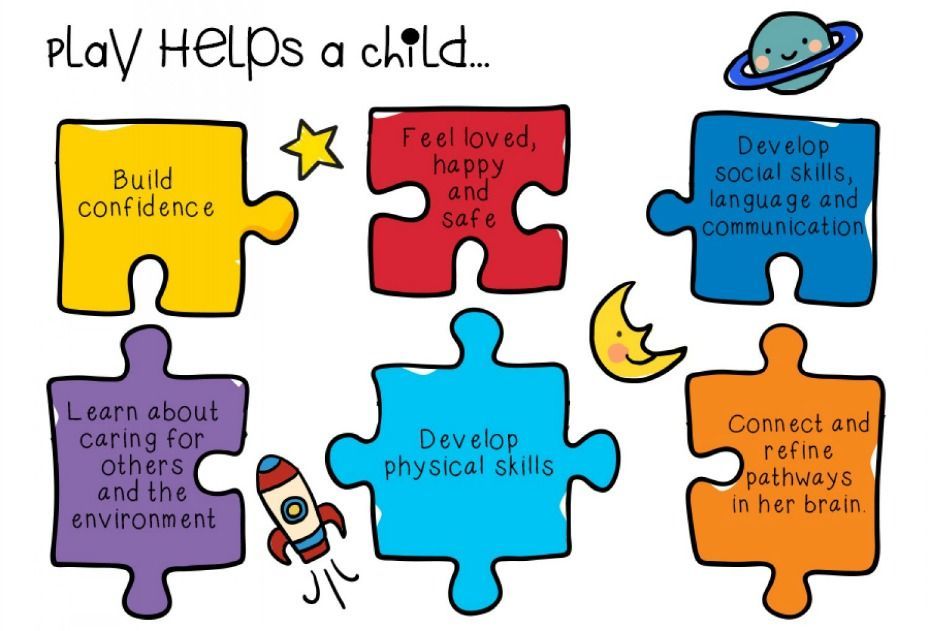Play is an essential part of a child’s development as it not only provides entertainment but also contributes to their overall growth and well-being. Whether it’s engaging in imaginative scenarios or participating in physical activities, play enables children to learn important skills, develop social connections, boost their creativity, and enhance cognitive abilities. In this article, we will explore the significance of play in child development and how it positively impacts various areas of a child’s life.
Enhancing Cognitive Abilities
Playtime activities like solving puzzles, building blocks, and engaging in pretend play, stimulate a child’s cognitive abilities. These activities require problem-solving skills, critical thinking, and decision-making. As they engage in such play, children learn to observe patterns, make connections, and explore cause and effect relationships. This kind of cognitive stimulation is crucial for brain development and helps them develop skills that will benefit them academically and personally.
Promoting Physical Development
Play also plays a vital role in a child’s physical development. Outdoor activities such as running, jumping, climbing, and cycling improve their coordination, balance, and overall physical fitness. Fine motor skills like drawing, cutting, and building with small objects are enhanced through arts and crafts activities. These physical play experiences are essential in strengthening their muscles, developing hand-eye coordination, and improving their dexterity.
Social and Emotional Skills
When children engage in play, they learn to interact with others, negotiate, and resolve conflicts. Play provides an environment where they can practice social skills, such as taking turns, sharing, and cooperation. Through imaginative play, children can explore various roles and understand different perspectives, which helps develop empathy and emotional intelligence. Furthermore, play helps children build self-confidence, boosts their self-esteem, and manages stress and anxiety.
Creativity and Imagination
Play encourages children to use their imagination and creativity freely. Whether it’s building a castle out of blocks or creating an imaginary story with dolls, play allows children to experiment, think outside the box, and come up with unique ideas. This fosters their problem-solving skills, innovation, and helps them develop a sense of originality. Creative play also promotes self-expression, enabling children to communicate their ideas, thoughts, and emotions in a non-verbal manner.
Intellectual and Language Development
Through play, children explore their environment, experiment, and learn about various objects and concepts. They develop vocabulary as they engage in conversations and pretend play scenarios. Whether it’s playing house or setting up a grocery store, children practice using language skills, expanding their vocabulary and enhancing their communication abilities. Play-based learning significantly contributes to intellectual development, as it allows children to explore their curiosities and interests.
Unstructured Play vs. Structured Play
Both unstructured and structured play have their own benefits in child development. Unstructured play gives children the freedom to explore, make decisions, and learn at their own pace. It allows them to follow their interests and ideas, fostering creativity and imagination. Structured play, on the other hand, provides guided activities with specific goals and rules, helping children develop discipline and focus. A combination of both unstructured and structured play is crucial for a well-rounded development in children.
The Role of Parents and Caregivers
Parents and caregivers play a fundamental role in promoting play for child development. They need to create a safe and supportive environment that encourages play, provides access to various toys, materials, and outdoor spaces. Engaging in play with their children not only builds and strengthens the parent-child bond but also helps in guiding and facilitating learning experiences. By actively participating in play, parents can promote language development, cognitive growth, and social interactions.
Conclusion
Play is much more than just a fun activity for children. It is a crucial component of their overall development. By engaging in play, children enhance their cognitive abilities, physical skills, social and emotional competence, creativity, and language development. Parents and caregivers must recognize the importance of play and provide opportunities for children to engage in a variety of play experiences. By doing so, we can ensure that children grow and flourish in a holistic manner, paving the way for their future success.
